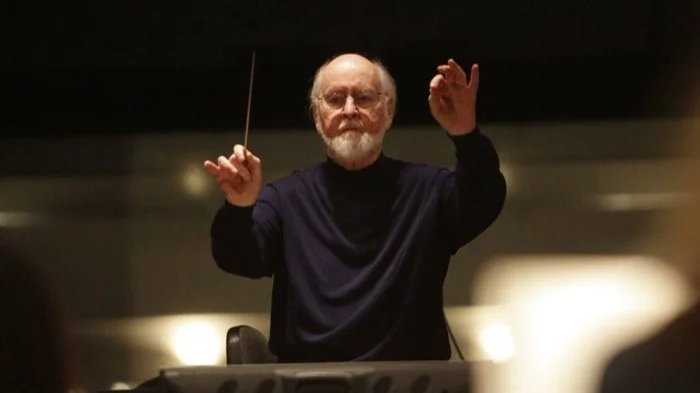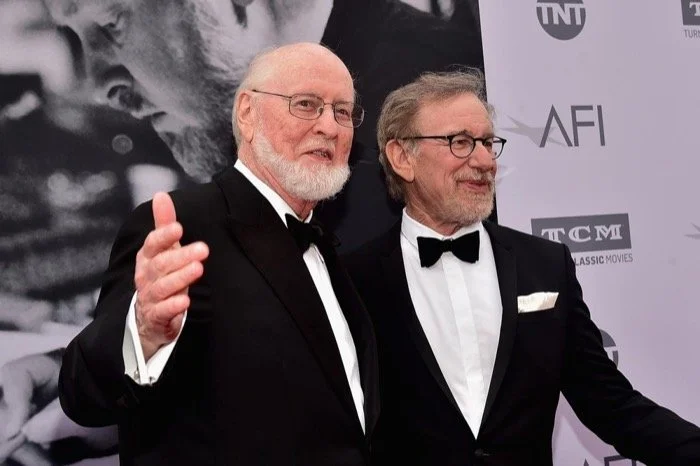5 Interesting Facts About John Williams
Image Source: StarWars.com
If you were to ask someone to name a film composer, they would all likely name John Williams. The composer, director, arranger, and musician is one of the most prolific musical voices in cinema and his music has provided a rich sonic landscape in numerous films for decades. From Steven Spielberg’s incredible Schindler’s List (1993) to Rob Marshall’s visually astounding Memoirs of a Geisha (2005), his soaring Lydian melodies and trudging staccato marches are somehow always at the edge of the mind, and never fail to inspire wonder and a feeling of adventure.
Many of us have our favorite musical moments from John Williams’ incredible catalog. For some of us, his music accompanied clashes of lightsabers, the twinkling of magic, or even the rowdy punch of pistols and galloping of horses. For music students, you have likely played a theme or learned about how Williams’ film work was inspired by the works of Gustav Holst. Today, we are going to look back at the man behind the themes, symphonies, and marches. Here are five interesting facts about John Williams.
RELATED:
5. He Served In The U.S. Air Force
Image Source: WPTV
As a member of the U.S. Air Force, Williams arranged music for the U.S. Air Force Band. This is not uncommon for people with musical gifts in the United States Armed Forces. Coffee or Die Magazine provides an impressive list of these figures noting that Tony Bennett performed with a military band during his service, and George Strait performed in a band endorsed by the U.S. Army during his.
4. His Partnership With Spielberg Spans Over 40 Years
Image Source: Yahoo
The duo of Steven Spielberg and John Williams has given movie-goers unforgettable moments for over four decades! The pair have made 26 films together according to IMDb and counting! Their impact on the film industry is profound and virtually immeasurable.
3. He Composed For The Olympics
Image Source: WSB-TV
John Williams’ compositional accomplishments branch out beyond film and television. He has produced concertos as well as two symphonies. However, one that likely resides in the hearts and minds of many is his “Olympic Fanfare and Theme.” Debuting in coverage of the Olympics in 1984, the music made a splash. However, WRTI explains that it wasn’t until the music accompanied Leo Arnaud’s “Bugler’s Dream” in 1996 that we had the definitive soundtrack of the event. Williams received the Olympic Order from the International Olympic Committee for this work and its subsequent impact of it.
2. He Has Honorary Degrees From 21 Different Institutions
Image Source: WEWS
Despite studying piano and Julliard School, Williams subsequently received honorary degrees from several notable universities. These include the Oberlin Conservatory of Music, the University of Southern California, Boston University, and the New England Conservatory of Music to name a few.
1. He Has Received A Tremendous Amount Of Accolades
Image Source: CinemaBlend
To say John Williams has won nearly every award possible for his work is not the overstatement it might seem to be. The composer has won an astounding 25 Grammys along with 7 BAFTAs, 4 Golden Globes, and 5 Oscars. Along with these accomplishments he was awarded the National Medal of the Arts by the United States Government. Williams received a Kennedy Center Honor from the Board of Trustees of The Kennedy Center. He was also inducted into the American Academy of Arts & Sciences and arranged music for the first inaugural ceremony of President Barack Obama.
Thank you for coming on this journey as we explored some of the most interesting facts about one of our favorite film composers! Do you think we missed any facts that would have been on your list of interesting facts? I hope you had fun and may the Force be with you!
READ NEXT:
Source(s): JohnWilliams.org






